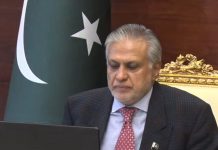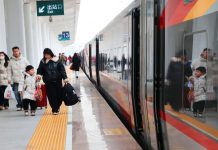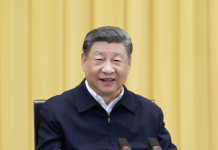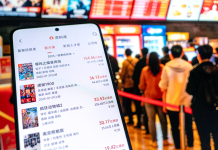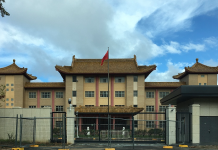Beijing: Chinese President Xi Jinping delivered a keynote speech via video link at the opening ceremony of the third China International Import Expo (CIIE) in Shanghai on Wednesday. For the third time in a row that the Chinese president addressed such event, which has become a key platform for furthering globalization and multilateralism.
At the second edition of the expo in 2019, President Xi, along with French President Emmanuel Macron, savored French wine and beef. French entrepreneurs said they were bullish about the Chinese market and hoped to further expand exports in China. Amid the pandemic-induced slumber of the global trade, the surging sales of French beef have eked out growth in Sino-European trade. According to Eurostat, in the first seven months of 2020, the total import and export volume between China and the 27 EU member-states logged a 2.6-percent year-on-year hike. In a first, China surpassed the U.S. to become the EU’s largest trade partner.
Kenya is the world’s biggest flower exporter. At the debut of the CIIE in 2018, the colorful Kenyan flowers grabbed the spotlight.
President Xi toured the Kenyan wing of the expo along with his Kenyan counterpart Uhuru Kenyatta.
“The CIIE is a very ideal platform for exchanges and cooperation,” said Clement Tulezi, chief executive of the Kenya Flower Council, adding “At present, our annual export of flowers to China has reached 4,000 tonnes.”
At the previous two installments of the CIIE, President Xi announced a slew of pragmatic measures for China to further propel its opening-up course. CGTN evaluates the achievements of the past two years. Foreign trade: “We will take further steps to lower tariffs, facilitate customs clearance, reduce institutional costs in import, and step up cross-border e-commerce and other new forms and models of business,” President Xi vowed at the launch of the CIIE in Shanghai in 2018.
In recent years, China has repeatedly slashed import tariffs to stimulate import potential and optimize the structure of imports. Starting from January 1, 2020, China has levied provisional import tariff rates lower than the most-favored-nation tariff rates on more than 850 commodities.
In terms of optimizing the business environment at ports, 86 types of regulatory documents that were previously required to be checked were reduced to 44.
This September, the overall customs clearance time across the country was reduced by 64.04 percent for imports and 84.87 percent for exports compared with 2017. The cost of customs clearance has significantly reduced.
Further opening-up: At the first CIIE, President Xi expounded the country’s measures for further opening-up spanning all areas.
“We are steadily increasing the openness of the financial sector, continuing to open up the services sector, and working towards greater openness in the agricultural, mining and manufacturing sectors,” Xi said. “We are accelerating opening in areas such as telecommunications, education, medical service and culture. In particular, the foreign equity caps are going to be raised in the education and medical services sectors, where there is both huge interest among foreign investors and shortage in domestic supply,” he added. (Part-I)
–The Daily Mail-CGTN News exchange item


